Summary | Excerpt | Reading Guide | Discuss | Reviews | Beyond the book | Read-Alikes | Genres & Themes | Author Bio

The story of a black girl in America whose love for its blond, blue-eyed children can devastate all others. First published 1970; won the 1993 Nobel Prize. Republished 2000.
The Bluest Eye, published in 1970, is the first novel written by Toni Morrison, winner of the 1993 Nobel Prize in Literature.
It is the story of eleven-year-old Pecola Breedlove--a black girl in an America whose love for its blond, blue-eyed children can devastate all others--who prays for her eyes to turn blue: so that she will be beautiful, so that people will look at her, so that her world will be different. This is the story of the nightmare at the heart of her yearning and the tragedy of its fulfillment. Selected as Oprah Winfrey's April 2000 Book of the Month. Republished by Random House in April 2000
Excerpt
Nuns go by as quiet as lust, and drunken men and sober eyes sing in the lobby of the Greek hotel. Rosemary Villanucci, our next-door friend who lives above her father's cafe, sits in a 1939 Buick eating bread and butter. She rolls down the window to tell my sister Frieda and me that we can't come in. We stare at her, wanting her bread, but more than that wanting to poke the arrogance out of her eyes and smash the pride of ownership that curls her chewing mouth. When she comes out of the car we will beat her up, make red marks on her white skin, and she will cry and ask us do we want her to pull her pants down. We will say no. We don't know what we should feel or do if she does, but whenever she asks us, we know she is offering us something precious and that our own pride must be asserted by refusing to accept.
School has started, and Frieda and I get new brown stockings and cod-liver oil. Grown-ups talk in tired, edgy voices about Zick's Coal Company and take...
What audience would you recommend The Bluest Eyer to? Is there another book or author you feel has a similar theme or style?
I am probably in the minority, but I'm sorry I would not recommend this to my friends or book club. It addresses tough topics, but the tragedies and depravity were overdone, for my taste. It lacks even a thread of hope. This book may be best read and discussed in a college literature class. I wil...
-Sylvia_L
The novel opens with an excerpt from an old-fashioned reading primer. The lines begin to blur and run together -- as they do at the beginning of select chapters. What do you think Morrison is trying to say or achieve by starting her book this way?
I think she was showing how the idea of the perfect family was first shown in early reading books. It was perpetuated in their daily lives, by the neighborhoods in which they were allowed to live, the schools they could attend, and other forms of discrimination. Television shows portrayed only wh...
-Sylvia_L
The title of the novel refers to Pecola's intense desire for blue eyes. How do you feel racial self-loathing corrodes the lives of Pecola and her parents? How does this manifest itself in characters like Maureen Peal, Geraldine, and Soaphead Church?
The Breedloves lived in a storefront because they were poor and black and they believed they were ugly. They had this conviction and did nothing to show love or to inspire self-love or confidence in their children. Pauline and Cholly fell in love and moved north to Ohio for a better life. Pauline...
-Sylvia_L
Frieda loves her dolls while Claudia preferred to dismantle them. Did you play with dolls as a child, or were you more of the “dismantling” type?
I received dolls, but did not really play or mother them. I am a mother of two and I was a loving and caring mother. Claudia destroyed her dolls, because they were white and she could not identify with them. I remember when Black dolls were introduced and it made sense to me that the young Black ...
-Sylvia_L
Pecola approaches Soaphead about obtaining blue eyes. Why do you think the author included this story? How would it have been different, in your opinion, if it had been relayed from Pecola’s point of view rather than Soaphead’s?
I just re-read this part and I'm still confused. Soaphead was a fraud, but he wanted to grant her wish for blue eyes. She believed her eyes turned blue and that was going to give her the life for which she yearned. When she talked to her friend, she kept asking if hers were "the bluest eyes". Alt...
-Sylvia_L
Were you familiar with The Bluest Eye before your recent reading of it? If you’d read it before, how has your interpretation or opinion of the novel changed since you first encountered it?
I had heard of the book, but had not read any of Morrison's books. She is a skillful writer with beautiful prose. I will read another one of her books. I do not like exlicit sex or depravity in books. I don't think I'm a prude, but details of Soaphead's involvement with young girls, Pecola's rape...
-Sylvia_L
Overall, what did you think of The Bluest Eye? (no spoilers, please!)
This is the first book by Morrison that I have read. She writes skillfully with beautiful prose about difficult topics. I found it difficult to read this tragic, heartbreaking story of Pecola's rejection, self-loathing, degradation, and sexual violation. It was not an enjoyable read for me, but i...
-Sylvia_L
Did learning about Cholly’s and Pauline’s pasts help you develop any sympathy for either of them?
I would 100% echo this thoughtful response. I did not feel any sympathy for either Cholly or Pauline.
-Laurie_L
In her forward, the author states that she was concerned readers would be led “into the comfort of pitying her rather than into an interrogation of themselves.” She feels she failed. Do you agree? What emotions did you feel on finishing the novel?
I can't say that I was led into the " comfort" of pitying Pecola. There is no black and white answer to this question for me. I was trapped in the sadness and depression of her life. Once I could move slightly past of these initial feelings, I was able to examine my personal past experiences with...
-Laurie_L
Is there a quote or scene in The Bluest Eye that stood out for you? Why do you suppose it resonated?
"The master had said, 'Your are ugly people.' They had looked about themselves, saw nothing to contradict the statement; saw, in fact, support for it leaning at them from every billboard, every movie, every glance…and they took the ugliness in their hands, threw it as a mantle over them, and went...
-Rosemary_Coffman
Morrison says of the women who move from the South: “[T]hese girls soak up the juice of their home towns, and it never leaves them.” What do you suppose she means? Do you agree? Do you feel you're someone who “soaked up the juice” of your home town?
I think this might have been more true during the time period in which The Bluest Eye was set. At the time people still grew up in communities divided by ethnicity - my relatives, for example, grew up in the Hungarian neighborhood of Cleveland - so I think subtle cultural influences were more lik...
-kim.kovacs
What advantages do you see in telling Pecola's story from a child's point of view? How would the story’s impact be different if narrated by an adult?
I thought Claudia's narration was much less judgmental than an adult version of the story would have been – both with regard to Pecola and with regard to Cholly and Pauline.
-Laura_Poe
At first, Maureen defends Pecola from the schoolyard bullies, but later Maureen insults Pecola, Claudia and Frieda (“I am cute! And you ugly! Black and ugly…”). What did you think of this scene? How did this interaction affect each of the girls?
Claudia and Frieda were not as affected by this encounter as Pecola was. The thing that struck me most about this scene was the fact that Claudia understood that it was not Maureen who was the enemy: "The Thing to fear was the Thing that made her beautiful, and not us." That THING was what societ...
-Lorraine_R
How did you see beauty standards impacting the different girls in the novel? How are things different today, and how are things the same?
I think most all girls want to be pretty no matter what demographic they come from. In Pecola's case, I think she equated beauty with love. Sadly, I think a lot of women feel this way today as well. Because of exposure to social media, television, magazines, etc, I think women today often struggl...
-Charla_W
How does Morrison set up comparisons between a Northern black community and the Southern black way of life? What values do you think have been gained or lost in the migration north?
The biggest difference I see in this age is the lack of respect for elders. I don't want to limit that to being black. Anyone I've ever met from "down south" used Mam and Sir when they first moved here (Pittsburgh area).
-Cheryl_R
Claudia feels her and Frieda’s sorrow for Pecola’s predicament “was the more intense because nobody else seemed to share it.” Why do you think others in the town were less than sympathetic to her to Pecola's situation? Why did no one offer to help?
Claudia feels her and Frieda's sorrow for Pecola's predicament "was the more intense because nobody else seemed to share it." The children were upset that no one seemed to sympathize with the poor girl's plight. Why do you think others in the town were less than sympathetic to her? Why did no one...
-kim.kovacs
What evidence is there that racial self-hatred continues to ruin lives today? What present-day cultural factors could contribute to tragedies like Pecola's?
The Bluest Eye was published in 1970. At the time Morrison was writing the novel, the racist society that condemned Pecola Breedlove was still very much in place and Morrison took great risks – both within the black community and American society as a whole – to tell this important story. While a...
-kim.kovacs
The author clearly condemns Cholly's actions but resists dehumanizing him. If rape of one's daughter is an "unimaginable" crime, can one at least trace the events (and resulting emotions) that made it possible for Cholly to commit this brutal act?
Consider Morrison's characterization of Cholly Breedlove. While she clearly condemns his actions, she resists dehumanizing him. If rape of one's daughter is an "unimaginable" crime, can one at least trace the events (and resulting emotions) that made it possible for Cholly to commit this brutal act?
-kim.kovacs
What role does social class play in the novel? What do you see as some of the results of the upward striving Claudia describes?
What role does social class play in the novel? Pecola first comes to stay with the MacTeers because her family has been put "outdoors" owing to her father's drunken violence and carelessness. The threat of "outdoors" focuses families like the MacTeers on upward mobility. "Being a minority in both...
-kim.kovacs
The narrator states that romantic love and physical beauty are "probably the most destructive ideas in the history of human thought." What did you think of this statement?
At a certain point in the novel, Morrison, through her narrator, states that romantic love and physical beauty are "probably the most destructive ideas in the history of human thought." How do the lives of individual characters bear out that statement, in your view? To what degree do you think th...
-kim.kovacs
About the The Bluest Eye by Toni Morrison Discussion category
Please join us in our book club discussion of The Bluest Eye by Toni Morrison.
-nick
What book(s) are you excited to read in 2025?
I'm looking forward to reading The Bluest Eye by Toni Morrison Medgar & Myrlie by Joy-Ann Reid Home and Away by Rocelle Alers The Women by Kristen Hannah Sky Full of Elephants by Cebo Campbell Lovely One by Justi...
-Joyce_Montague
In her introduction, Morrison writes that the book is an exploration of "the damaging internalization of assumptions of immutable inferiority originating in an outside gaze" — how outside opinions and "casual racial contempt" can "take root inside the most delicate member of society: a child; the most vulnerable member: a female." She shows this beautifully through the tragedy of Pecola's existence, demonstrating that self-hatred doesn't arise in a vacuum; nearly every character with whom she interacts thinks of her as "ugly" (a word Morrison uses repeatedly to reinforce the concept, rather than employing synonyms). The Bluest Eye has been recognized as a classic, and in my opinion, it deserves that label because its message remains every bit as relevant now as it was when the book was published in 1970. There's little in the narrative that places its action in the 1940s; almost every aspect of it is still common today...continued
Full Review
(754 words)
This review is available to non-members for a limited time. For full access,
become a member today.
(Reviewed by Kim Kovacs).
.jpg) Toni Morrison is the author of 11 works of fiction as well as a number of books and essays. She's best known for her novel Beloved, which won the 1988 Pulitzer Prize for Fiction. Morrison received the Nobel Prize for Literature in 1993 (the first Black woman to win the award) and was presented with the Presidential Medal of Freedom — the highest civilian honor of the United States — by Barack Obama in 2012.
Toni Morrison is the author of 11 works of fiction as well as a number of books and essays. She's best known for her novel Beloved, which won the 1988 Pulitzer Prize for Fiction. Morrison received the Nobel Prize for Literature in 1993 (the first Black woman to win the award) and was presented with the Presidential Medal of Freedom — the highest civilian honor of the United States — by Barack Obama in 2012.
Morrison was born Chloe Ardelia Wofford in 1931, in Lorain, Ohio, the daughter of working-class parents. At the age of 12, she became a member of the Roman Catholic church and took "Anthony" as her confirmation name (for St. Anthony of Padua, patron saint of the poor). This led to her lifelong nickname, "Toni." She...
This "beyond the book" feature is available to non-members for a limited time. Join today for full access.

If you liked The Bluest Eye, try these:
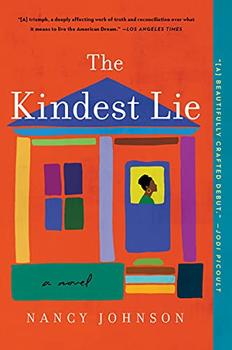
by Nancy Johnson
Published 2022
Powerful and revealing, The Kindest Lie captures the heartbreaking divide between Black and white communities and offers both an unflinching view of motherhood in contemporary America and the never-ending quest to achieve the American Dream.
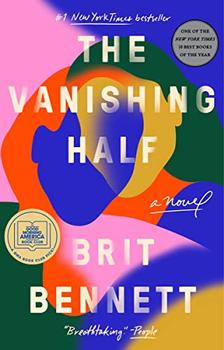
by Brit Bennett
Published 2022
From the New York Times-bestselling author of The Mothers, a stunning new novel about twin sisters, inseparable as children, who ultimately choose to live in two very different worlds, one black and one white.
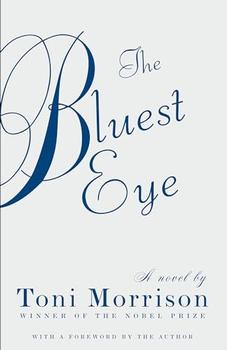
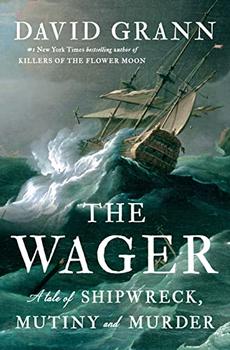


Three Days in June
by Anne Tyler
A new Anne Tyler novel destined to be an instant classic: a socially awkward mother of the bride navigates the days before and after her daughter's wedding.
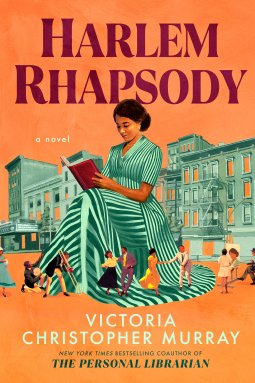
Harlem Rhapsody
by Victoria Christopher Murray
The extraordinary story of the woman who ignited the Harlem Renaissance.
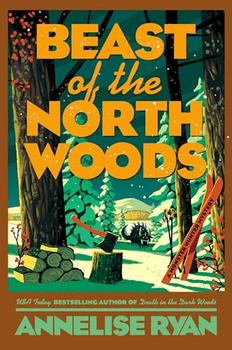
Beast of the North Woods
by Annelise Ryan
When a local fisherman is mauled to death, it seems like the only possible cause is a mythical creature.
If passion drives you, let reason hold the reins
Click Here to find out who said this, as well as discovering other famous literary quotes!